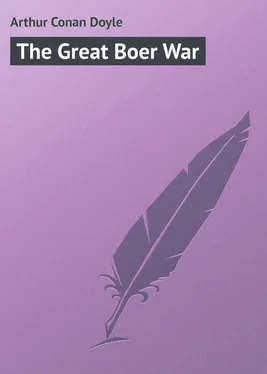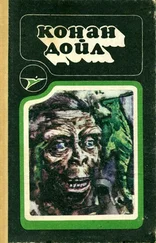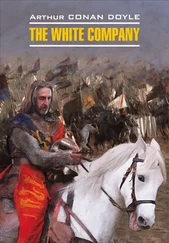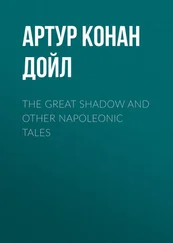And outside and beyond all these definite wrongs imagine to a free born progressive man, an American or a Briton, the constant irritation of being absolutely ruled by a body of twenty-five men, twenty-one of whom had in the case of the Selati Railway Company been publicly and circumstantially accused of bribery, with full details of the bribes received, while to their corruption they added such crass ignorance that they argue in the published reports of the Volksraad debates that using dynamite bombs to bring down rain was firing at God, that it is impious to destroy locusts, that the word 'participate' should not be used because it is not in the Bible, and that postal pillar boxes are extravagant and effeminate. Such obiter dicta may be amusing at a distance, but they are less entertaining when they come from an autocrat who has complete power over the conditions of your life.
From the fact that they were a community extremely preoccupied by their own business, it followed that the Uitlanders were not ardent politicians, and that they desired to have a share in the government of the State for the purpose of making the conditions of their own industry and of their own daily lives more endurable. How far there was need of such an interference may be judged by any fair-minded man who reads the list of their complaints. A superficial view may recognise the Boers as the champions of liberty, but a deeper insight must see that they (as represented by their elected rulers) have in truth stood for all that history has shown to be odious in the form of exclusiveness and oppression. Their conception of liberty has been a selfish one, and they have consistently inflicted upon others far heavier wrongs than those against which they had themselves rebelled.
As the mines increased in importance and the miners in numbers, it was found that these political disabilities affected some of that cosmopolitan crowd far more than others, in proportion to the amount of freedom to which their home institutions had made them accustomed. The continental Uitlanders were more patient of that which was unendurable to the American and the Briton. The Americans, however, were in so great a minority that it was upon the British that the brunt of the struggle for freedom fell. Apart from the fact that the British were more numerous than all the other Uitlanders combined, there were special reasons why they should feel their humiliating position more than the members of any other race. In the first place, many of the British were British South Africans, who knew that in the neighbouring countries which gave them birth the most liberal possible institutions had been given to the kinsmen of these very Boers who were refusing them the management of their own drains and water supply. And again, every Briton knew that Great Britain claimed to be the paramount power in South Africa, and so he felt as if his own land, to which he might have looked for protection, was conniving at and acquiescing in his ill treatment. As citizens of the paramount power, it was peculiarly galling that they should be held in political subjection. The British, therefore, were the most persistent and energetic of the agitators.
But it is a poor cause which cannot bear to fairly state and honestly consider the case of its opponents. The Boers had made, as has been briefly shown, great efforts to establish a country of their own. They had travelled far, worked hard, and fought bravely. After all their efforts they were fated to see an influx of strangers into their country, some of them men of questionable character, who outnumbered the original inhabitants. If the franchise were granted to these, there could be no doubt that though at first the Boers might control a majority of the votes, it was only a question of time before the newcomers would dominate the Raad and elect their own President, who might adopt a policy abhorrent to the original owners of the land. Were the Boers to lose by the ballot-box the victory which they had won by their rifles? Was it fair to expect it? These newcomers came for gold. They got their gold. Their companies paid a hundred per cent. Was not that enough to satisfy them? If they did not like the country why did they not leave it? No one compelled them to stay there. But if they stayed, let them be thankful that they were tolerated at all, and not presume to interfere with the laws of those by whose courtesy they were allowed to enter the country.
That is a fair statement of the Boer position, and at first sight an impartial man might say that there was a good deal to say for it; but a closer examination would show that, though it might be tenable in theory, it is unjust and impossible in practice.
In the present crowded state of the world a policy of Thibet may be carried out in some obscure corner, but it cannot be done in a great tract of country which lies right across the main line of industrial progress. The position is too absolutely artificial. A handful of people by the right of conquest take possession of an enormous country over which they are dotted at such intervals that it is their boast that one farmhouse cannot see the smoke of another, and yet, though their numbers are so disproportionate to the area which they cover, they refuse to admit any other people upon equal terms, but claim to be a privileged class who shall dominate the newcomers completely. They are outnumbered in their own land by immigrants who are far more highly educated and progressive, and yet they hold them down in a way which exists nowhere else upon earth. What is their right? The right of conquest. Then the same right may be justly invoked to reverse so intolerable a situation. This they would themselves acknowledge. 'Come on and fight! Come on!' cried a member of the Volksraad when the franchise petition of the Uitlanders was presented. 'Protest! Protest! What is the good of protesting?' said Kruger to Mr. W. Y. Campbell; 'you have not got the guns, I have.' There was always the final court of appeal. Judge Creusot and Judge Mauser were always behind the President.
Again, the argument of the Boers would be more valid had they received no benefit from these immigrants. If they had ignored them they might fairly have stated that they did not desire their presence. But even while they protested they grew rich at the Uitlander's expense. They could not have it both ways. It would be consistent to discourage him and not profit by him, or to make him comfortable and build the State upon his money; but to ill-treat him and at the same time to grow strong by his taxation must surely be an injustice.
And again, the whole argument is based upon the narrow racial supposition that every naturalised citizen not of Boer extraction must necessarily be unpatriotic. This is not borne out by the examples of history. The newcomer soon becomes as proud of his country and as jealous of her liberty as the old. Had President Kruger given the franchise generously to the Uitlander, his pyramid would have been firm upon its base and not balanced upon its apex. It is true that the corrupt oligarchy would have vanished, and the spirit of a broader more tolerant freedom influenced the counsels of the State. But the republic would have become stronger and more permanent, with a population who, if they differed in details, were united in essentials. Whether such a solution would have been to the advantage of British interests in South Africa is quite another question. In more ways than one President Kruger has been a good friend to the empire.
So much upon the general question of the reason why the Uitlander should agitate and why the Boer was obdurate. The details of the long struggle between the seekers for the franchise and the refusers of it may be quickly sketched, but they cannot be entirely ignored by any one who desires to understand the inception of that great contest which was the outcome of the dispute.
Читать дальше









